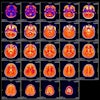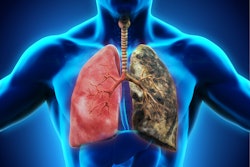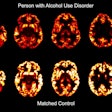Dear AuntMinnie Member,
Despite broad awareness of the issue and longtime availability of the American College of Radiology’s Appropriateness Criteria, inappropriate ordering of imaging studies remains a problem. Our most highly viewed story on AuntMinnie.com this week offered a glimpse into the frequency and yield of inappropriate CT, MR, and ultrasound orders from the emergency department.
In addition to finding inappropriate rates as high as nearly 60% for ultrasound exams, researchers observed that appropriate orders were almost three times as likely as inappropriate orders to show findings compatible with the initial diagnosis. What else did they find? Click here to learn more.
Also sharing the limelight this week on AuntMinnie.com was our report on the U.S. Preventive Services Task Force’s (USPSTF) final breast cancer screening recommendations. Although welcoming a return to recommending breast cancer screening beginning at age 40, breast cancer screening advocates were disappointed with the biennial frequency as well as the task force’s other recommendations. Click here for our coverage.
PET is showing potential as a tool in multiple sclerosis patients whose disease progresses despite being treated with disease-modifying therapies. The modality can show “smoldering” brain inflammation, persistent inflammation that increases atrophy of gray matter in the brain but is difficult to assess on MRI. Click here for all of the details.
A troubling study has revealed disappointing performance from U.S. federally qualified health centers (FQHCs), which were intended to provide care to underserved populations. However, screening gaps for breast, cervical, and colorectal cancer were judged to be contributing significantly to the percentage of underscreened individuals across the country.
Meanwhile, large language models aren’t ready to be of assistance in breast imaging. A new study this week reported that ChatGPT and Google Gemini could only muster moderate agreement with radiologists when classifying breast imaging findings. And other researchers have confirmed that it’s too soon yet to consider using large language models in clinical practice.
In other news, volumetric CT was deemed to be helpful for assessing lung function before and after lung cancer patients undergo pulmonary lobectomy. It was also helpful for predicting postsurgery complications.
See the full list below of our most popular stories of the week:
- Study finds high percentage of inappropriate imaging orders in the ED
- USPSTF finalizes breast cancer screening recommendations
- PET reveals ‘smoldering’ brain inflammation in patients treated for MS
- Large language models underperform in breast imaging
- U.S. federally qualified health centers show cancer screening gaps
- Volumetric imaging helps predict lung-lobectomy complications
- Jury still out on clinical use of ChatGPT
- DBT + CEM boosts cancer detection in women with history of the disease
- Interstitial lung abnormalities linked to respiratory disease risk
- Risk of knee osteoarthritis may depend on muscle mass
- AI brings scoliosis monitoring on x-rays into modern era
- AI stroke software differences don’t affect thrombectomy eligibility
- Automatic organ segmentation model available for testing with pediatric CTs
- United Imaging’s 5T MRI system cleared by FDA



















